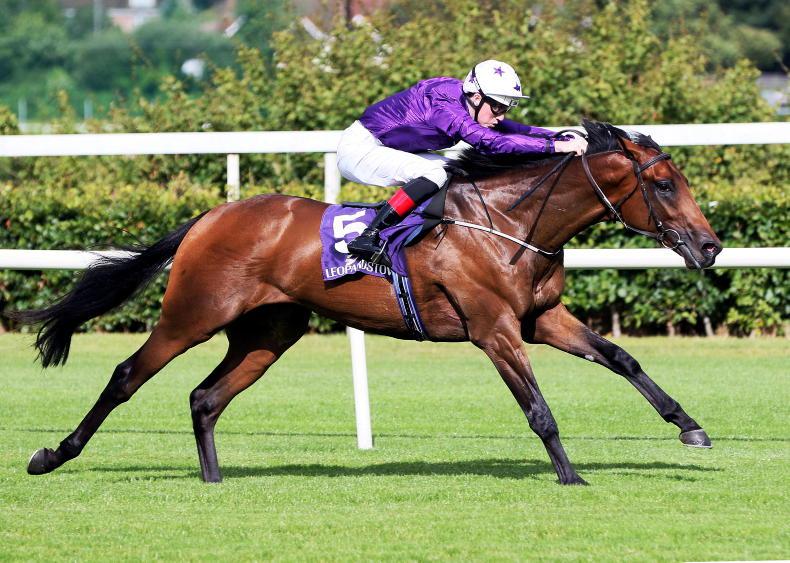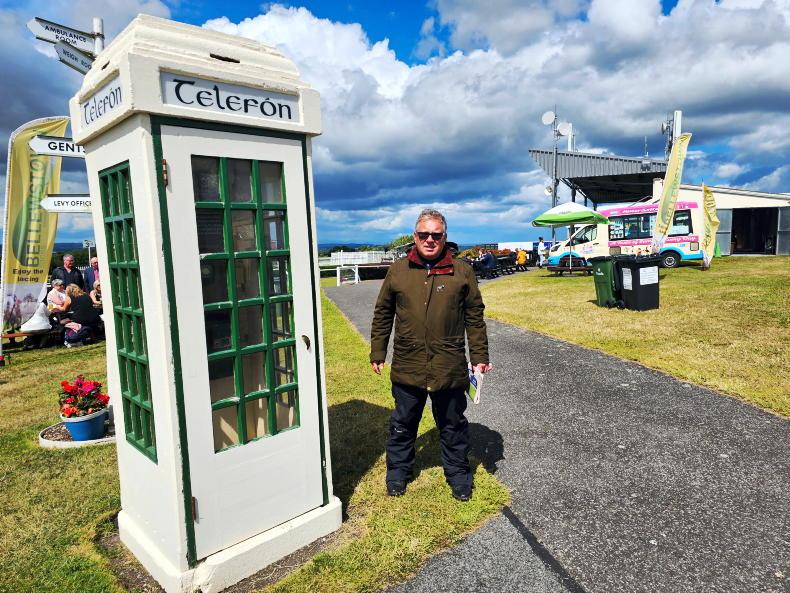THE recently announced HRI plan to address some of the issues in Irish jumps racing by excluding the top four trainers (those who had over 50 winners in the two previous seasons) from having entries in 60 nominated races in 2025, continued to create a lot of comment this week with reports that the “big four” were fighting against the plan.
“60 races designed by the HRI Programmes Committee to give trainers the confidence to attract new owners into their yards with the knowledge that there is a programme of races there to support them” was the comment from the governing body.
Ban the big boys... Give the small guy a chance…You can’t ban trainers from having runners for their owners... It’s punishing success… went the fallout.
As a starting point, 2023/2024 NH statistics do not look appealing to anyone wanting to get into or even continue in the sport as a trainer. The total of 425 races won by the top two trainers last season is a colossal portion.
You can imagine many trainers muttering “Willie, would ya ever take the summer off?”
But of course, mixed in with all the big-sending owners in those yards are very many smaller syndicates. And the Elliott and Cromwell yards in particular have a huge ownership base around group owned horses, mostly a lower, non-Festival level.
X posting
A post on social media X from leading owner Simon Munir, who has enjoyed great success with the Willie Mullins yard, but won the Irish Grand National with the exciting Tom Gibney-trained Intense Raffles, gained a fair bit of comment mid-week. He commented:
”It’s actually insulting to smaller trainers one of whom won the Irish National for us with Intense Raffles. Sport is all about competition not penalising success and creating sub-standard races by excluding winners.”
Some readers might remember Tom Gibney’s passing remarks in an RTV interview a year ago after a welcome winner, that he was relieved as that “Willie might come with some big f** thing…”

Indeed, Gibney has shown he can deliver the goods with a good horse and the new ‘plan’ might encourage ‘bigger’ owners to use trainers who have a smaller number of winners on the board each year. Tom Gibney’s seasons from 2021/22 to last season were 17, 10 and 13. There are valid opinions from both sides, but in the end any organisation is only as strong as its foundations. It’s got to have new blood coming in and a spread of success. The Olympic engagements surely showed us that.
Your award-winning front garden is no use if the foundations of your house are disintegrating. And often junp racing isn’t wearing its most appealing apparel these days.
Solid foundations means a broad base, a diverse set of owners, and the feeling that anyone could get involved.
At the end of the day, ‘restrictive’ races exist already. And it is not a huge portion of the races run in a season.
WHILE we are talking about selling our sport and engaging new fans, you couldn’t but compare the two big recent Irish sporting occasions, the two All-Irelands and the Olympics, and the attraction and engagement they offered fans.
It comes on the back of the Champions Full Gallop, ITV’s prime-time Friday evening six-part series, getting pretty mixed responses from those in the racing industry.
Bit dull, not engaging, too many presenters linking the story, seems to be the general comments.
“What we got instead was a watered-down, bland ITV Racing promo. Just talking heads, endlessly patting each other on the back, telling us how great everything is,” Emmet Kennedy of talkSPORT2 and FinalFurlongPod.
“Little bit underwhelmed, a promotional vehicle rather than gritty nuts and bolts - opportunity missed, cheer leader promotion.” Pundit Tony Calvin
“Racing doesn’t know how to sell itself, what its story is, how it’s going to bring people in. Whole tone is wrong, there is no intimacy.” Lawyer and racing fan Henry Stewart Moore on AKBets podcast
Among the general media covering the Olympic homecoming, the commentary continued to stress (Joe Duffy Show particularly) how wonderfully, decent, hard-working, humble people, all the athletes were.
It made you think of the contrast, what does racing offer for wider public appeal? When it feels like around 60% of the winners are owned by wealthy and/or foreign owners, 20% are slightly dodgy rogues trying to bend the rules at most opportunities, and 20% are the ordinary decent connections, loving the horse and the sport.
Is it a mini-crisis when the people in the sport and in its governance, can’t find a way to adequately ‘sell’ the sport?
Perhaps though, the TV show would be more engaging if it did go into the ‘dodgy’ areas. Are we too concerned with public perception that we have killed the characters?

Make a drama not a documentary which, even one with a bit of mild skullduggery in it, since everyone believes it goes on!
In a Racing Post piece back in January, comments were sought from a leading TikTok influencer Harry Ross-Hughes, on what racing was missing in these TV features. The answer was interesting.
“There are a lack of characters and figures of notoriety in horse racing. For the demographic of 18-30, they like to be entertained by viewing scenes of controversy or seeing prominent characters they can relate to or emotionally connect with. Racing, in my view, doesn’t quite match up or provide the personalities other sports can offer.”
Another suggestion from the ITV series was that it was more interesting to watch “people made awkward by direct interviewing” compared to the amount of praiseworthy interviews that frequent the Champions series.
Former trainer Charlie Brooks writing in The Telegraph said “It’s often the peripheral characters around the main protagonists who are a much more powerful prism to tell the real stories of determination, frustration, and disappointment.”
I remember the late lamented John McCririck saying, if he died he’d never want to go to heaven - could you imaging spending eternity with just the ‘good’ people?! Maybe it’s time to take the plunge and go for a less sanitised show?




 This is a subscriber-only article
This is a subscriber-only article
 It looks like you're browsing in private mode
It looks like you're browsing in private mode












SHARING OPTIONS: